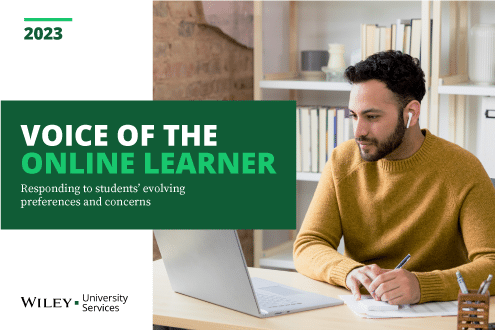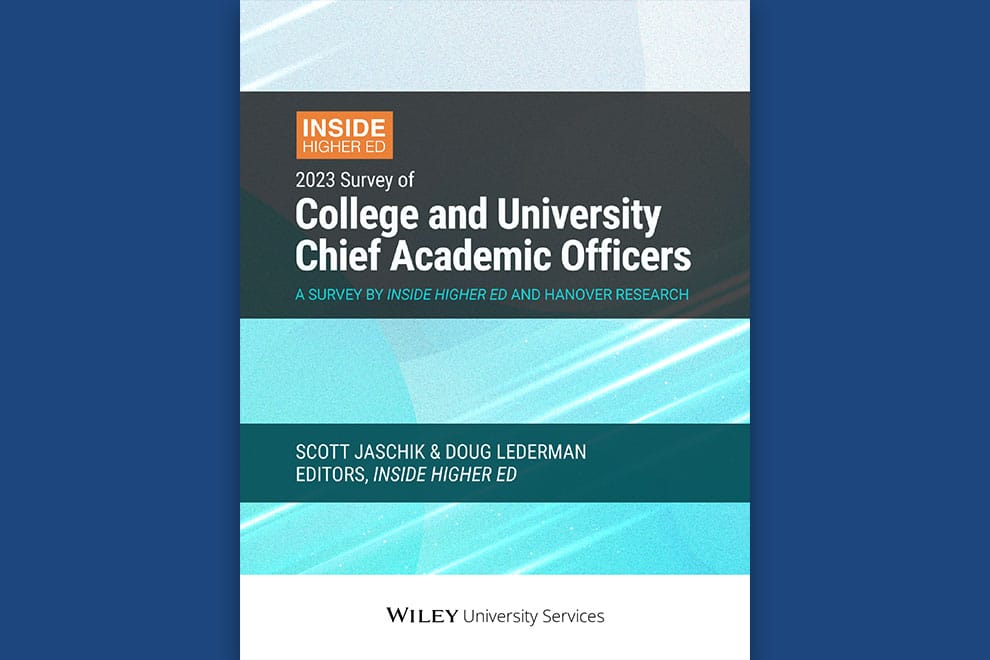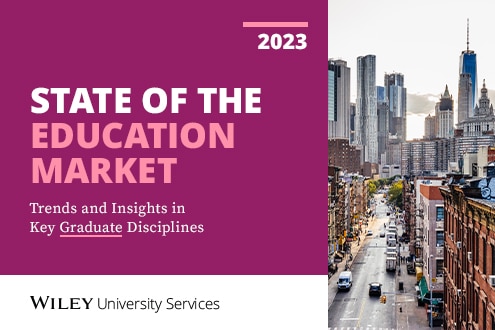The majority of universities have recognized the value of online education, sparking intense competition. Discover the trends that matter the most to online students, including support and resources that can optimize the overall learning experience.
Online learning is a significant part of the long-term strategy at most colleges and universities. An analysis of IPEDS data shows that online course enrollments increased 41% from 2013 to 2018. Considering that overall higher education enrollments decreased 1% during that period, it’s easy to understand why schools prioritize online programs in their strategic plans.
Of course, growth in online program offerings is a positive trend for students. Now, students can choose from more programs and be more selective while searching for the best option for their needs. However, the rapid launch of online degrees has created intense competition among schools. This raises the stakes for schools to build credentials that attract students and provide a rewarding experience once classes begin.
Wiley University Services, a leading global provider of technology-enabled education solutions, recently partnered with Aslanian Market Research to conduct a study of online students pursuing degrees in Wiley-supported programs. Students were asked to provide feedback on why they chose to study online, what factors contribute to their success, and whether they’re satisfied with their enrollment decision. Notably, 88% of students were satisfied in their decision to enroll in an online program that Wiley supports.
The report feedback highlights how schools must take a student-first approach across every step of the online education journey. It also highlights several ways to best meet the needs of learners, which include:
Examining the Student Journey to Remove Barriers to Flexibility
The top reason students chose to enroll in an online program is the flexibility it allows them in their daily lives. It’s not surprising, given the desire to study while maintaining personal and professional commitments. Many online students have full-time jobs and families, making flexibility paramount. Because of this, convenient scheduling was also listed as a top reason students enrolled in online programs.
Data from the survey suggested that student satisfaction may decrease when online programs fall short of expectations for flexibility. Schools should establish standards for flexibility to ensure promises are kept. Faculty plays an important role, too. Professors can create weekly deadlines for assignments that accommodate students’ schedules and promote asynchronous classroom environments.
Focusing on Faculty and Peer Engagement Opportunities
Like in physical classrooms, faculty serve as the face of an institution for online students. Schools shouldn’t assume that students who study online shy away from opportunities to interact with faculty, staff, and peers. The study found that accessing resources such as success coaches and building relationships with both professors and other students can contribute to academic success.
Many respondents felt that connecting with instructors can improve learning experiences and agreed that faculty members give useful feedback. By taking an active part in discussion boards and providing context for difficult content, perhaps through recordings that students can refer to multiple times, faculty members can further enhance the learning experience. The survey also revealed the importance of peer engagement. A strong majority of respondents agreed that in discussions, they learned a lot from peers’ perspectives.
Creating a Consistent Experience in the Learning Management System
Respondents rated having a consistent experience between courses within the Learning Management System (LMS) nearly as high as other aspects of their learning experience. When designing online courses, syllabi should appear in the same location, and content should follow a comprehensive layout. Library and support resources should also be consistent.
When building the learning experience in an LMS, focus should be given to develop an intuitive navigation. By making content and features easy to find and in consistent locations, students will be able to get what they need quickly.
Online learning offers tremendous value for schools, and its importance will grow through improvements to the student experience. Our higher education services are proven to deliver personalized and valuable learning experiences that stand out from competitors.
Download the Student Perspectives on Online Programs Report today to see the study results. Plus, visit our Resources page for access to even more insights on how to support online learners.

















